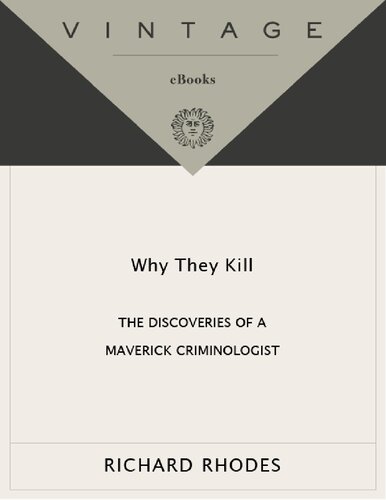
Why They Kill
The Discoveries of a Maverick Criminologist
کتاب های مرتبط
- اطلاعات
- نقد و بررسی
- دیدگاه کاربران
نقد و بررسی

January 4, 1999
What transforms an ordinary person into a violent criminal? Not genetic inheritance or low self-esteem or coming from a violent subculture, answers Pulitzer Prize--winning author Rhodes (The Making of the Atomic Bomb, etc.), but rather a process of brutalization by parents or peers that usually occurs in childhood. In this provocative study, Rhodes focuses on the work of criminologist Lonnie Athens, who teaches at Seton Hall University in New Jersey. Athens believes that violent crime results from "social retardation," a process whereby an individual who was abused in childhood guides his or her actions by recourse to a "phantom community" of the internalized voices of caregivers and others. Rhodes tests Athens's theory against specific cases, including those of boxer and convicted rapist Mike Tyson; Cheryl Crane, daughter of actress Lana Turner, who at age 14 stabbed to death her mother's lover; and Lee Harvey Oswald. The author champions Athens as a pioneering genius battling a criminological establishment that ascribes violent crime to psychopathology or antecedent social conditions; yet he overestimates the originality of Athens's work (the "phantom community" in some ways resembles Freud's superego), and his well-intentioned study is at times belabored. Both Rhodes and Athens suffered through horrifically abusive childhoods, which adds a compelling personal note to this study but may also color their views. Rhodes strongly endorses Athens's call for school-based prevention programs to break the cycle of domestic and societal violence. Agents, Morton Janklow and Anne Sibbald, Janklow & Nesbit Associates.

























دیدگاه کاربران